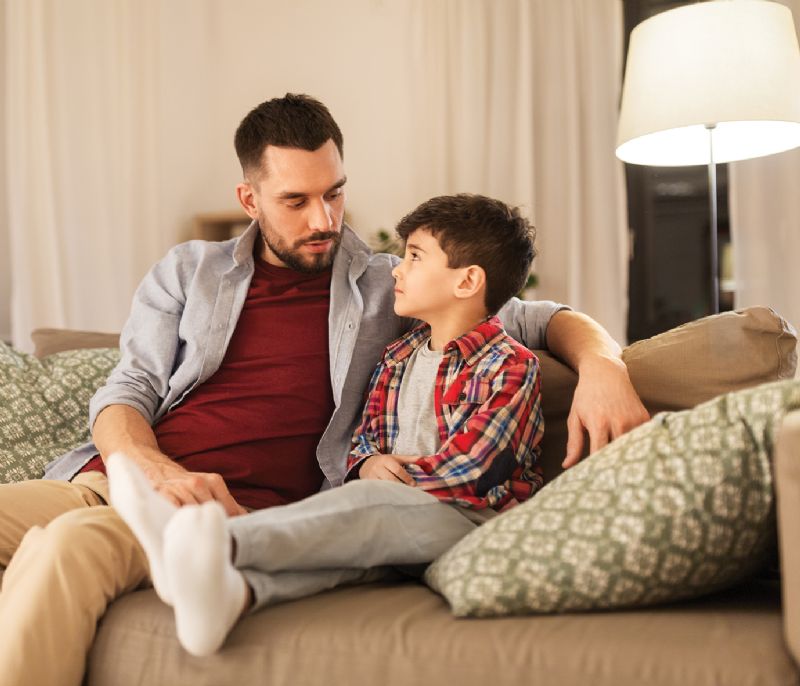- Home
- News, Articles & Reviews
We are hiring! Please click here to join our growing magazine delivery team in Gloucestershire!
Areas
Education, Training & Employment
Archive

Talking to children about ‘real life’ topics
All Areas > Education, Training & Employment > Education & Employment
Author: Holly Prince, Posted: Monday, 30th November 2020, 09:00
If you are a parent, you have many roles to play in your children’s lives, which may include cook, cleaner, driver, and also teacher. Children are naturally inquisitive – asking questions about their environment, what things are, how things work, and why, why, why!
When something major happens in the world that is all over the news, such as wars and violence, murders and crime, and more recently Coronavirus, children will quickly find out about it and want to understand what is happening.
They may also want to know about things they have seen via adverts on TV, and there are often more adverts on around Christmastime, about appeals for children living in poverty or animals suffering abuse and neglect.
Lessons at school can also raise big topics and a child may come home with questions about issues such as racism, bullying, sex or drugs, so we as parents need to be prepared to discuss these things as openly and honestly as we can.
The child who is fobbed off with a short, offhand answer (or worse, no answer at all), may then turn to other sources of information such as peers or the Internet, which may not be so reliable or which may give false or conflicting information.
So learn about these topics yourself – read and listen to a variety of sources to gain the facts so that you feel ready to talk about issues that you yourself may find uncomfortable.
Give your child a wide perspective on subjects
Be open to different views in order to give your child a wide perspective on subjects, and so that when you’re talking to your child, you’re not too biased towards certain viewpoints. This will enable the child to make up their own mind about what they think and how they feel about the issues.
Schools also play their part in educating young people about social or health-related topics in curriculum subjects such as PSHE (personal, social, health and economic education), Life Studies or Citizenship lessons, but we can’t expect teachers to take full responsibility for telling our children about the whys and wherefores of what happens in the world.
However, as teachers have to stick to the curriculum and remain impartial, not imparting any extreme views on worldly issues, this means that all children then get to hear the same facts and can learn to form their own opinions.
The world can seem a scary place, but it’s also a fascinating one, so get ‘clued up’ on what’s out there in the world – it will be useful for when your child becomes inquisitive and starts asking questions.Copyright © 2025 The Local Answer Limited.
Unauthorized use and/or duplication of this material without express and written permission from this site's author and/or owner is strictly prohibited. Excerpts and links may be used, provided that full and clear credit is given to The Local Answer Limited and thelocalanswer.co.uk with appropriate and specific direction to the original content.More articles you may be interested in...


© 2025 The Local Answer Limited - Registered in England and Wales - Company No. 06929408
Unit H, Churchill Industrial Estate, Churchill Road, Leckhampton, Cheltenham, GL53 7EG - VAT Registration No. 975613000You are leaving the TLA website...
You are now leaving the TLA website and are going to a website that is not operated by us. The Local Answer are not responsible for the content or availability of linked sites, and cannot accept liability if the linked site has been compromised and contains unsuitable images or other content. If you wish to proceed, please click the "Continue" button below:




